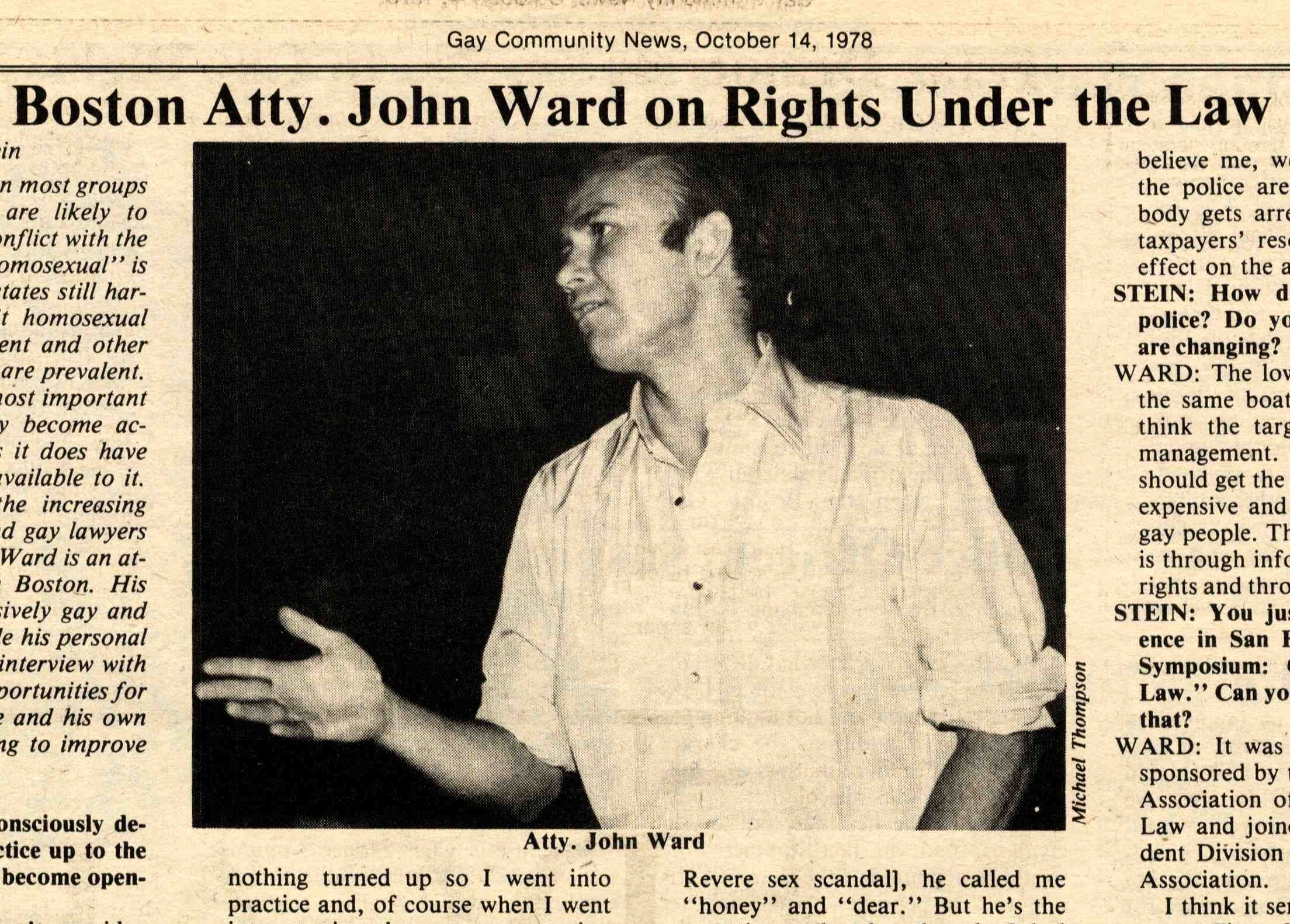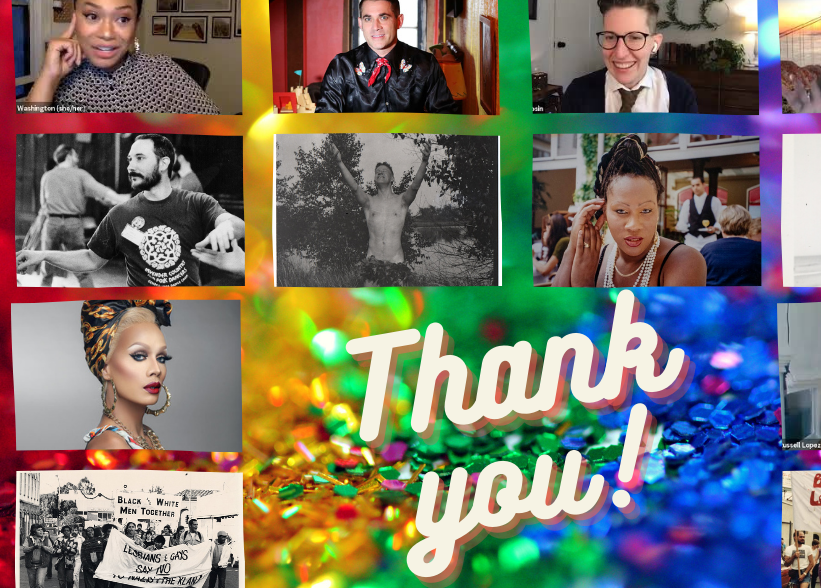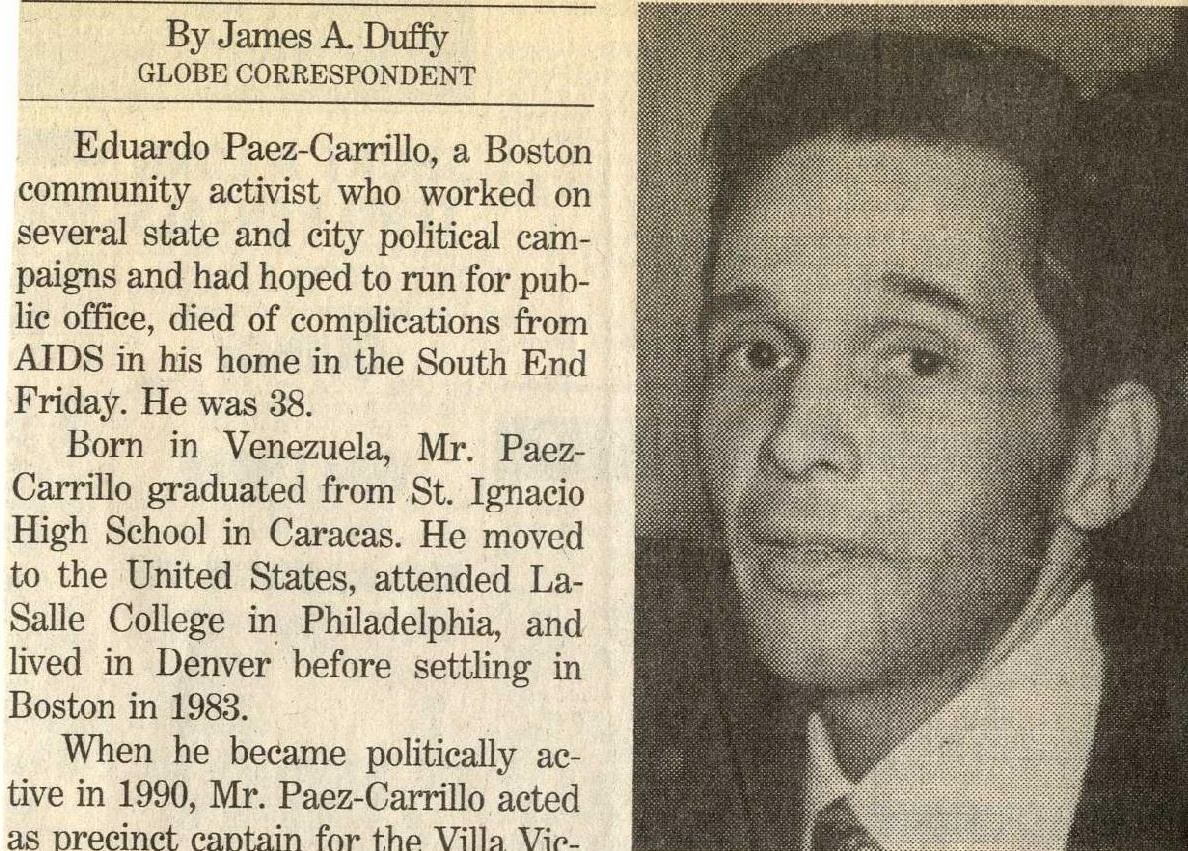Sort by:
Bulletin: Gay and Lesbian Labor Activist Network (September 2019)

In honor of Labor Day, this month's focus is on the Gay and Lesbian Labor Activist Network (GALLAN). Our collections include several large file drawers on LGBT organizations. Some of these organizations are national, others are local. Most of the time, the collections consist of a single folder and so no finding aid or collection file has been prepared. However, we maintain an index of these folders and organizations.
Judging from the folder (any perspectives or information you might have to share about GALLAN would be most appreciated), GALLAN was active for at least ten years beginning in 1989. It was a chapter of Pride at Work, AFL-CIO, which had at least ten affiliates across the country. In addition to workers' rights, its agenda included lobbying organizations to implement Domestic Partner Benefits and ending workplace discrimination. It had monthly meetings, held rallies, and sponsored trainings and educational events. It was proudly political, urging support for Liz Malia when she first ran for State Representative, for example. One lasting legacy was that it cemented the partnership between the LGBTQ community and organized labor. In the battles over antidiscrimination laws, same-sex marriage, and the trans rights referendum, organized labor was a strong supporter of our rights. As you can see, GALLAN was well connected, hosting an event featuring Cesar Chavez, the great agricultural union and civil rights leader. The event's proceeds went to the United Farm Workers (very active in Western Massachusetts as well as California) and the Fenway Health Center. Happy Labor Day!Top Related Stories
Announcing the 2021 HistoryMaker and Lavender Rhino Honorees
The History Project, Boston’s LGBTQ archives, is pleased to announce John Ward as our 2021 HistoryMaker [...]
The History Project, Boston’s LGBTQ archives, is pleased to announce John Ward as our 2021 HistoryMaker [...]
Our Gift To You: The History Project's 2020 Holiday Watch-List
Whether this year's crop of LGBTQ holiday rom-coms is inspiring excitement, disappointment, or even rage (Was [...]
Whether this year's crop of LGBTQ holiday rom-coms is inspiring excitement, disappointment, or even rage (Was [...]
Bulletin: World AIDS Day (December 2019)
Sunday, December 1 was World AIDS Day. For those of us who lived through the years [...]
Sunday, December 1 was World AIDS Day. For those of us who lived through the years [...]


